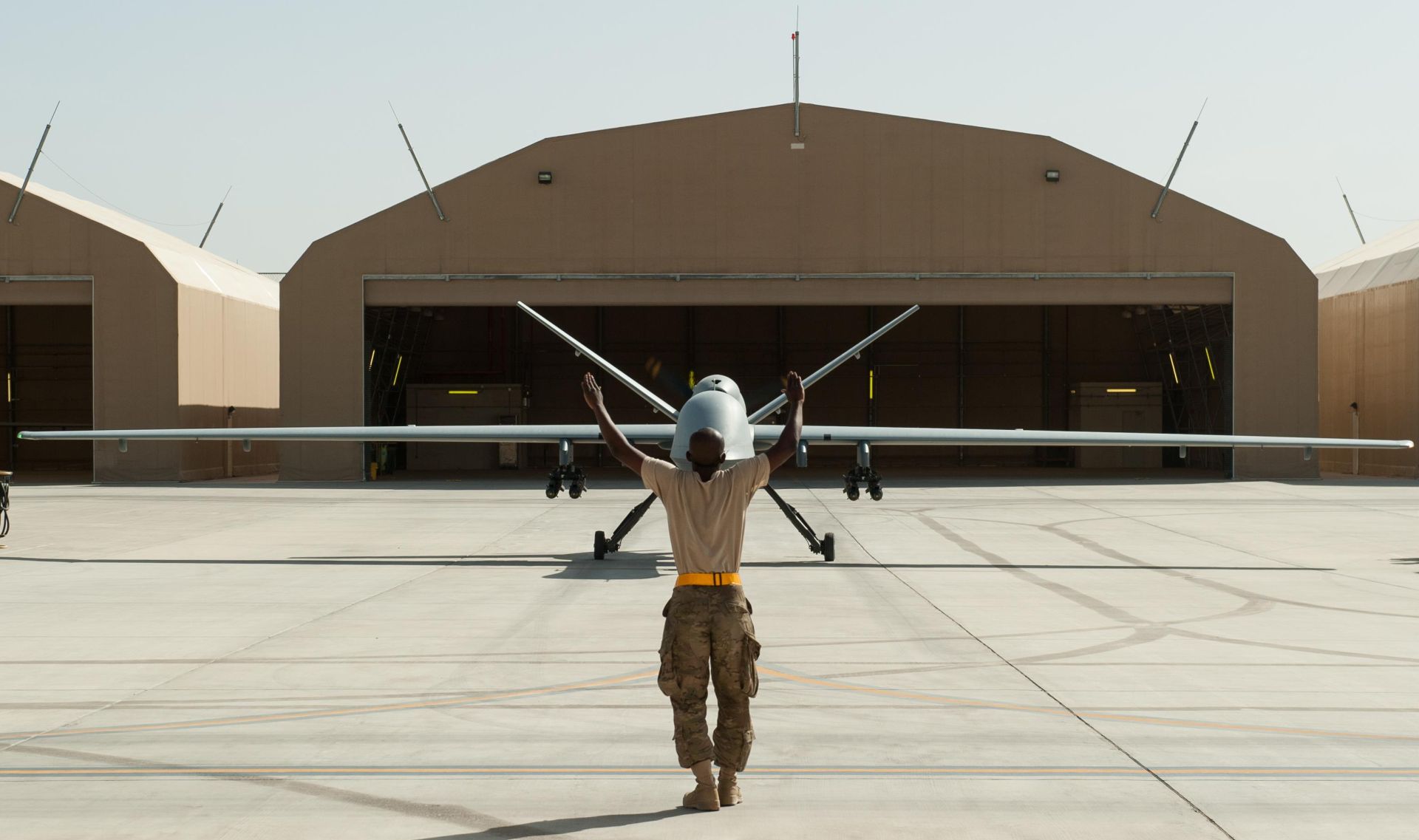KANDAHAR AIRFIELD, Afghanistan: Airmen assigned to the 62nd Expeditionary Reconnaissance Squadron provide world-class close air support and intelligence, surveillance and reconnaissance in the Afghanistan area of operations.
They complete this mission by maintaining, launching and recovering all MQ-1B Predators and MQ-9 Reapers in the country from Kandahar and Jalalabad Airfields.
“MQ-1s and MQ-9s account for over 90% of all ISR collected in Afghanistan,” said Capt. Chris, a 62nd ERS MQ-1B Predator launch and recovery pilot. “The presence of this squadron is absolutely critical to RPA operations within this (area of responsibility). Without this squadron being here our capability to collect ISR in Afghanistan would be significantly reduced.”
The 62nd not only provides most of the ISR in Afghanistan, they are also important for the service members outside the wire since they contribute to the close air support mission here.
“We’re not only responsible for a large percentage of ISR, but also the (close air support) hours flown in Afghanistan,” Chris said. “To know you’re a part of that and you’re enabling the ground units from aerial platforms is hugely rewarding.”
“MQ-1s and MQ-9s are essential to locating high value targets, facilitators of IEDs and those bringing weapons into the country … we’re absolutely on the hunt,” said Lt. Col. Michael E. Navicky, the 62nd ERS commander. “We also help with troops in contact by performing (close air) support to individuals that may be in direct contact with the enemy. We can deploy weapons to support them or direct other assets in the area to support them.”
Operations and maintenance fall under the 62nd ERS and not as separate squadrons, which is common throughout the Air Force.
“We’re different, usually the maintenance and operations are in different squadrons,” Navicky said. “We’re very fortunate here to have both the operators and the maintainers within the 62nd. We provide the full spectrum of RPA support; flying, launching and landing them and working directly with the maintainers.”
The unique way the squadron is organized allows for quicker response times when it comes to launching and recovering the RPAs.
“We have about 15 different (Air Force Specialty Codes) within the squadron, and it has shown to have some real benefits to have direct coordination between the ops and maintainers,” Navicky said. “Some benefits are quicker trouble shooting, quicker reaction to launches and landings and quicker reaction to inflight emergencies.”
One of these different AFSCs is the sensor operator who works with the pilots to successfully launch and land RPAs.
“As a sensor operator I control the pod and also help the pilots aviate the plane when we are launching and recovering aircraft from Kandahar,” said SSgt Jarrett, a 62nd ERS MQ-9 Predator sensor operator. “The pilots cannot work without us and we cannot work without them. Our mission here is very important. We continue to provide base defense and ISR in this country and we support the guys on the ground with sound ISR and (close air support).”
Even though there is a good mix of career fields within the 62nd ERS, they come together every day to complete the missions in Afghanistan.
“The reason that we have come together so well is that no one is worried about their AFSC or think that their job is more important than others,” Navicky said. “Everyone knows that they are a cog in the machine and they need to do their duties in order to complete the overall mission of getting the RPAs off the ground and into the air in support of the warfighter. The mission is the absolute most important thing and that no one’s individual effort is more important than another’s.”
(Author’s Note: The last name of certain airmen are withheld in accordance with operational security requirements)










